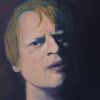7 Best-Selling Free Will Books Millions Love
Tyler Code Wildcat, Paul Bloom & Oliver Sacks share their picks for best-selling Free Will books that challenge and enlighten readers.


There's something special about books that both critics and crowds love, especially when it comes to a topic as profound as free will. Millions of readers have turned to these titles to untangle the complex questions about human agency, responsibility, and choice that shape how we understand ourselves and society. The enduring debate over free will remains central, not just in philosophy, but across neuroscience, ethics, and theology.
Leading voices like Tyler Code Wildcat, a prominent video game influencer, have found their perspectives challenged by Sam Harris's concise exploration of free will as an illusion. Psychologist Paul Bloom praises Harris’s ability to break down complex ideas, while neurologist and author Oliver Sacks highlights the book’s clarity and wit. Their endorsements underscore why these books resonate widely, bridging academic rigor with accessible insights.
While these popular books provide proven frameworks, readers seeking content tailored to their specific Free Will needs might consider creating a personalized Free Will book that combines these validated approaches. This way, you can explore the nuances that matter most to your own understanding and interests.
Recommended by Tyler Code Wildcat
Video game influencer and entertainer
“I read this book. Interesting book. We are all robots walking around with the illusion of free will. Or are we? 🤯” (from X)
by Sam Harris··You?
by Sam Harris··You?
Drawing from his background in neuroscience and philosophy, Sam Harris challenges the ingrained belief in free will by presenting it as an illusion rooted in brain processes beyond our conscious control. You’ll gain a nuanced understanding of how this perspective reshapes concepts like morality, responsibility, and personal achievement, especially through Harris's concise yet compelling argument spread over just 96 pages. The book’s examination of determinism alongside free will invites you to reconsider daily decisions and societal structures without diminishing the importance of freedom or ethics. If you’re curious about the intersection of science and philosophy and want a thought-provoking reconsideration of human agency, this book offers a clear, focused exploration without unnecessary complexity.
Recommended by The San Francisco Chronicle
“Few people understand the human brain as well as renowned neuroscientist Robert Sapolsky.” (from Amazon)
by Robert M. Sapolsky··You?
by Robert M. Sapolsky··You?
Robert M. Sapolsky, a Stanford professor of biology and neurology awarded a MacArthur Foundation genius grant, delivers a thorough examination of free will that blends neuroscience, philosophy, and complexity science. You’ll explore how consciousness intertwines reason and emotion, and how behaviors emerge from biology rather than any separate self-command. The book challenges you to rethink morality, punishment, and personal responsibility by showing that our actions are shaped by forces beyond our control. If you're curious about the science behind decision-making and how it reshapes society’s view on blame and choice, this book offers deep insights without losing its engaging tone.
by TailoredRead AI·
This tailored book explores the intricate interplay between neuroscience and philosophy to illuminate the concept of free will. It examines how brain processes influence decision-making while engaging philosophical perspectives that question and deepen our understanding of human agency. By focusing on your interests and background, this personalized guide reveals how scientific findings and philosophical insights converge to clarify the nature of choice and autonomy. Readers will appreciate a thoughtful examination of brain mechanisms alongside age-old philosophical debates, making complex ideas accessible and relevant to individual goals. This approach enriches your grasp of free will by aligning content with what you find most compelling and useful.
by David Basinger, Randall Basinger·You?
by David Basinger, Randall Basinger·You?
David and Randall Basinger explore a question that has challenged theologians for centuries: if God controls everything, how can humans truly be free? They bring together four scholars from theology and philosophy to present distinct perspectives on divine sovereignty and human freedom, each supported by practical case studies and critical dialogues. You’ll gain a nuanced understanding of competing views—ranging from God's absolute control to his self-limitation to preserve freedom—and how these ideas impact Christian thought. This book suits anyone interested in theology, philosophy of religion, or the ongoing debate about predestination and free will, offering you thoughtful frameworks rather than simple answers.
by Professor Shaun Nichols·You?
by Professor Shaun Nichols·You?
Unlike most philosophical texts that dwell in abstraction, Professor Shaun Nichols grounds the age-old debate of free will versus determinism in clear, accessible lectures that invite you to weigh each argument yourself. Nichols, blending philosophy with psychology, unpacks how beliefs about choice and control ripple through everyday decisions and even influence justice systems. Chapters guide you through historical perspectives and modern interpretations, making complex ideas approachable whether you're new to the topic or revisiting it. This book suits anyone eager to engage thoughtfully with how much control we truly have over our lives and the ethical consequences that follow.
by Martin Luther, David W. Sloan·You?
by Martin Luther, David W. Sloan·You?
Martin Luther, a seminal figure in the Protestant Reformation, wrote The Bondage of the Will to address a profound theological debate about human freedom and divine grace. This work dissects the question of whether humans possess free will in spiritual matters, grounding its arguments deeply in scripture and Reformation theology. You gain insights into the relationship between divine sovereignty and human choice, exploring complex doctrines with clarity seldom matched in theological literature. This book is particularly suited for those interested in Christian theology, philosophy of religion, and the historical debates surrounding human will and salvation. Its detailed scriptural exegesis and Luther’s passionate argumentation make it a vital read for anyone seeking to understand the spiritual dimensions of free will.
by TailoredRead AI·
This tailored book explores the complexities of free will through a focused, step-by-step journey designed specifically for you. It combines widely respected concepts and insights that millions have found valuable, with a unique approach that matches your background and goals. The book examines essential ideas about human agency, choice, and responsibility, unfolding them gradually over 30 days to build a clear and personal understanding. By concentrating on areas that resonate with your interests, this personalized guide fosters a deep grasp of free will debates, philosophical nuances, and neuroscientific perspectives. It reveals how these themes interconnect, encouraging reflection on your own beliefs and the broader implications of freedom and determinism.
by Augustine, Thomas Williams··You?
by Augustine, Thomas Williams··You?
Drawing from his academic rigor as a philosophy professor, Thomas Williams offers a translation of Augustine's complex exploration of human will that remains surprisingly accessible. You gain insight into Augustine's nuanced arguments about moral responsibility and the nature of choice, particularly how freedom interacts with divine providence. The book unpacks challenging concepts like the will's role in sin and virtue, making it relevant if you're interested in theological philosophy or ethics. While it’s dense, those engaged with philosophy or religious studies will find the clarity in the introduction and translation especially helpful.
by Robert Kane·You?
by Robert Kane·You?
Drawing from decades of philosophical scholarship, Robert Kane tackles the enduring puzzle of free will with a fresh perspective grounded in incompatibilism. Rather than resorting to mystical explanations, Kane argues that free will can coexist with a scientific worldview, presenting a rigorous case for libertarian agency. Through a detailed exploration of contemporary debates and his own controversial stance, you gain insight into how free will might operate without contradicting modern science, including chapters that clarify complex notions of agency and moral responsibility. This book suits those deeply interested in philosophy of mind and ethics who seek a thoughtful challenge to compatibilist views.
Proven Free Will Strategies, Personalized ✨
Get popular Free Will insights customized to your unique questions and goals.
Endorsed by top experts and thousands of curious readers
Conclusion
Collectively, these 7 books offer a diverse, validated exploration of free will, from neuroscientific challenges to theological debates and philosophical analyses. They provide frameworks that have stood the test of time and expert scrutiny, helping readers grapple with one of humanity's most persistent questions.
If you prefer proven methods grounded in science, start with Sam Harris's Free Will [Deckle Edge] and Robert Sapolsky’s Determined. For validated philosophical and theological approaches, combine Great Philosophical Debates with Predestination & Free Will or The Bondage of the Will. For a deep dive into libertarian free will, Robert Kane's The Significance of Free Will offers a rigorous challenge.
Alternatively, you can create a personalized Free Will book to combine proven methods with your unique needs. These widely-adopted approaches have helped many readers succeed in understanding the complexities of human choice and freedom.
Frequently Asked Questions
I'm overwhelmed by choice – which book should I start with?
Start with Sam Harris's Free Will [Deckle Edge] for a concise, clear introduction to the topic that challenges common beliefs about free will. It's thoughtful yet accessible, making it a great entry point.
Are these books too advanced for someone new to Free Will?
Not at all. Titles like Great Philosophical Debates provide clear lectures that welcome newcomers, while others offer accessible discussions suited for both beginners and those with prior knowledge.
What’s the best order to read these books?
Begin with neuroscience-focused books like Harris’s Free Will and Sapolsky’s Determined to understand scientific perspectives, then explore philosophical and theological works to deepen your understanding.
Do I really need to read all of these, or can I just pick one?
You can pick one based on your interest—science, philosophy, or theology—but reading multiple offers a fuller picture of the diverse debates surrounding free will.
Are any of these books outdated given how fast Free Will changes?
While some classics explore enduring questions, recent works like Sapolsky’s Determined incorporate contemporary neuroscience, keeping the discussion current and relevant.
Can personalized Free Will books complement these expert picks?
Yes! These expert books provide a strong foundation, and personalized Free Will books tailor insights to your unique questions and goals, blending popular methods with your needs. Check out personalized Free Will books for tailored learning.
📚 Love this book list?
Help fellow book lovers discover great books, share this curated list with others!
Related Articles You May Like
Explore more curated book recommendations
![Free Will [Deckle Edge] book cover](https://m.media-amazon.com/images/I/41qeSwmdxVL._SL500_.jpg)





